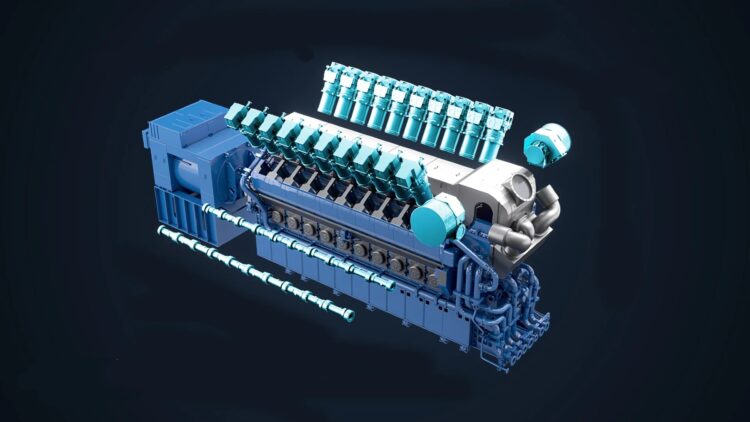The country that has been a pioneer in environmental politics for a long time more than once surprised the world with a new invention that will change the world of energy. Following years of research and development, Bergen Engines, a leading Norwegian manufacturing firm, has recently released a 100% hydrogen-compatible engine.
This innovation will soon dominate the search for cleaner and more efficient energy sources as a substitute for the current electric vehicle industry and hydrogen fuel.
The process behind creating this hydrogen-powered engine was complex and took years of testing
The development of this hydrogen-powered engine has not been easy; it started with mixing hydrogen with natural gas. As early as 2022, Bergen Engines introduced a 15% hydrogen blend that was a significant move towards a cleaner energy source. Following this success, the company launched a 25% hydrogen blend in 2023.
This was an important step, proving the feasibility of hydrogen as one of the most essential fuel sources for terrestrial and marine vehicles. As with the current tests and improvements, the company plans to launch an engine running on pure hydrogen by the end of 2024.
This engine is unique because it can operate with pure hydrogen, which not many manufacturers have managed to do. This particular engine does not combine the fuel types used in conventional internal combustion engines.
Instead, this engine directly injects hydrogen into the cylinder and does not require the catalytic converters extensively used in the current models to alleviate emissions. This innovation increases engine performance and decreases emissions by large, making the environment greener. This is a giant step toward change to sustainable energy options.
Hydrogen fuel may be the key to replacing fossil fuels in many industries
Hydrogen is believed to have the following advantages when used as a fuel: Hydrogen is a versatile and clean energy carrier. For the new development of Bergen Engines, the paper has shown that hydrogen blending helps to decrease carbon emissions and improve combustion efficiency.
The more the concentration of hydrogen increases in the fuel blend, the better the engine capacity, with enhanced power and efficiency of fuel consumption. This makes hydrogen the most suitable substitute for conventional fossil fuels, especially for industries that depend on high-performance engines for energy and power production.
This is not to say that the development of the hydrogen-powered engine does not come with its own set of problems. Hydrogen is a high-pressure gas; hence, the storage systems and the components that need to be sealed must be robust to avoid fatal accidents.
In addition, the size and weight issues are critical in the design to meet the characteristics of hydrogen and its properties. However, these challenges should not be a cause for concern as Bergen Engines targets to carry out the last 100% hydrogen-powered engine tests by this year-end.
Once these tests are successfully conducted, the engine will be ready for commercial use, and in turn, more sustainable energy will be on the market.
The potential for sustainable power goes beyond hydrogen; the future of energy is diversified
This engine is just the beginning. Bergen Engines is also investigating the possibility of using alternative environmentally friendly fuels, like ammonia and methane, as a component of its commitment to fuel diversification.
The company has also forged industrial collaboration, e.g., with FME Mar Trans, aiming for CO2 emission reduction in the marine environment and promoting the use of hydrogen. The country’s leadership in developing hydrogen-fueled engines establishes a new sustainable energy paradigm and a transition path for companies from coal-derived fuels.
In conclusion, the demonstration of the 100% hydrogen-powered engine represents an essential contribution to Norway’s transition towards a sustainable future. This evolution should be disruptive in the energy and transport sectors and a clean alternative to electric vehicles and fossil fuels.
While Bergen Engines is continuing to further its technology, the potential of the world in which tomorrow’s engine will be driven by hydrogen does exist.

